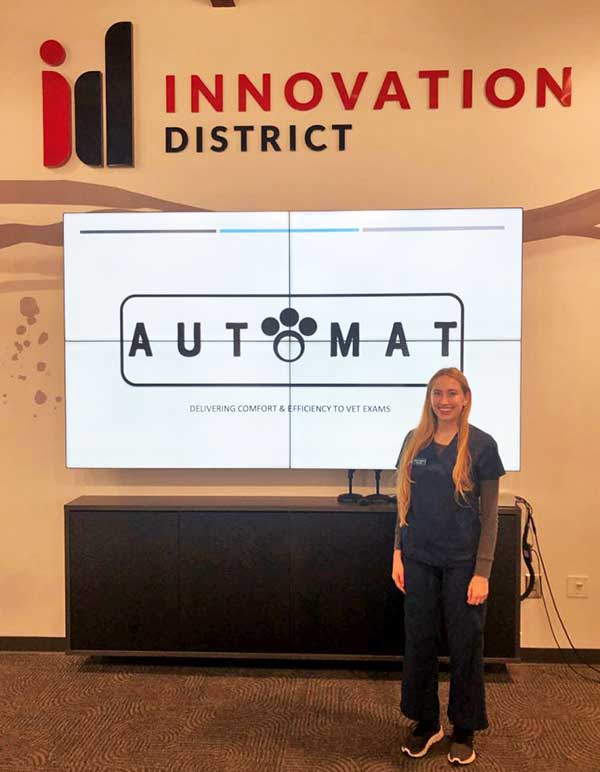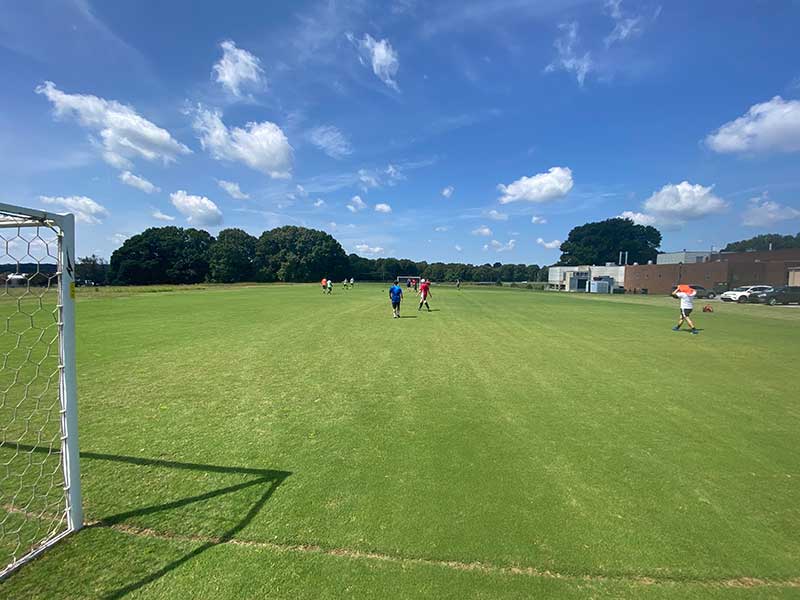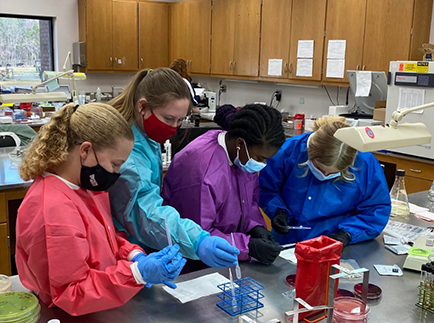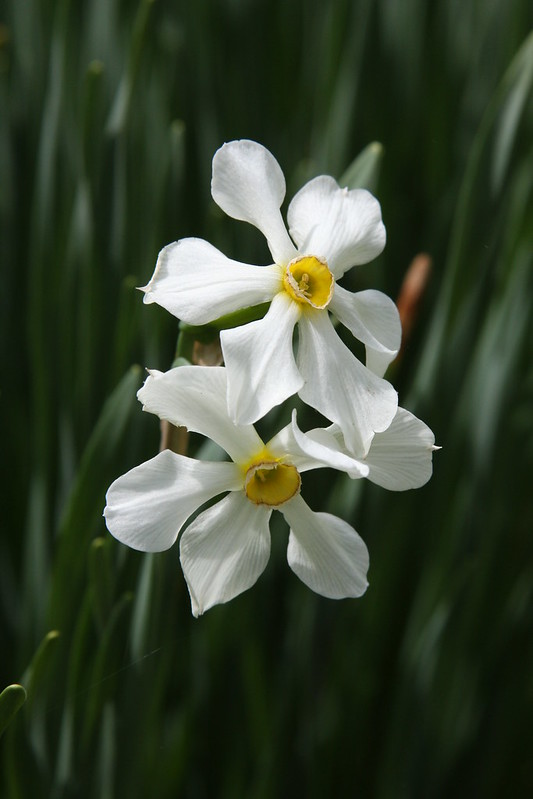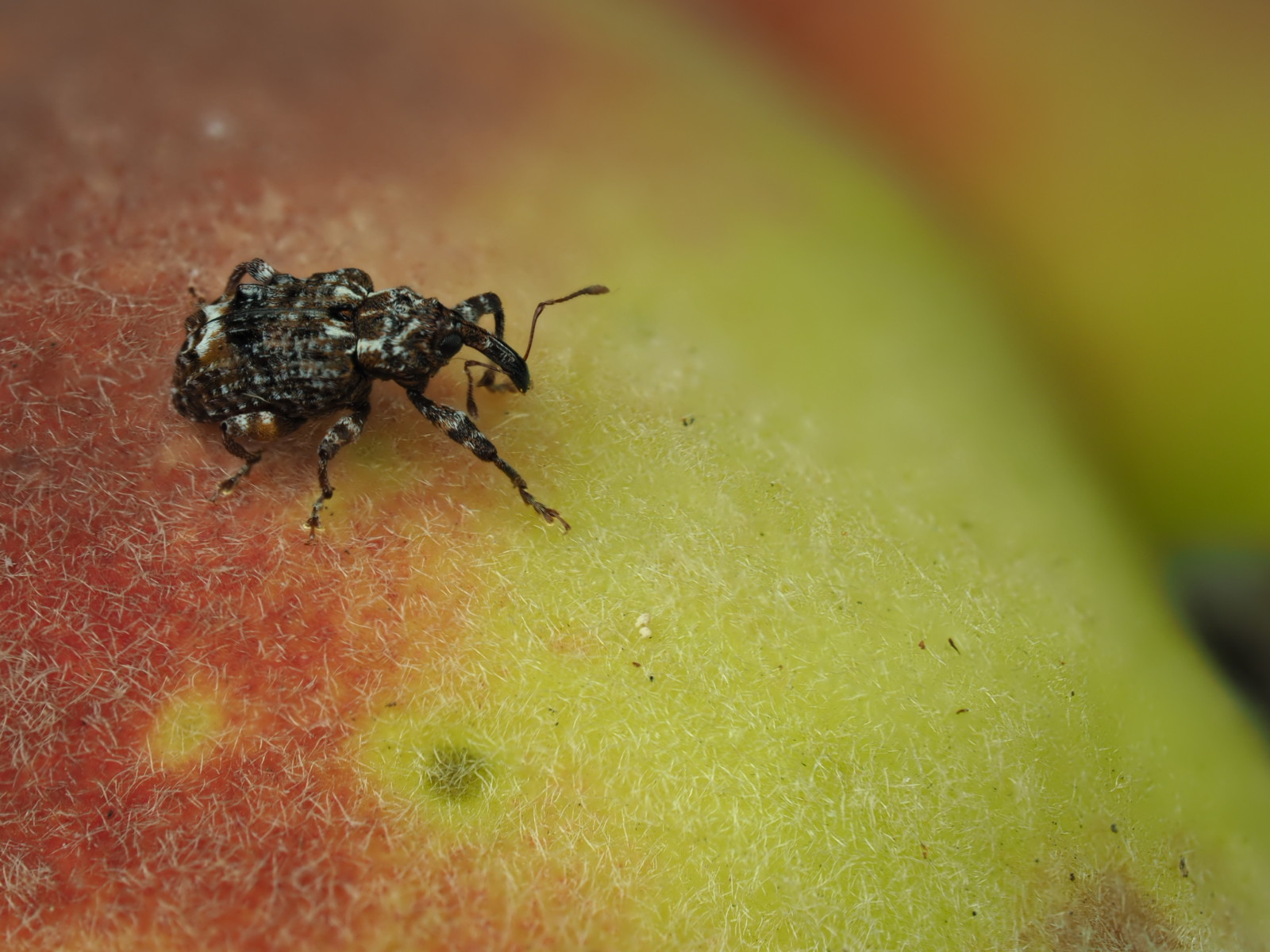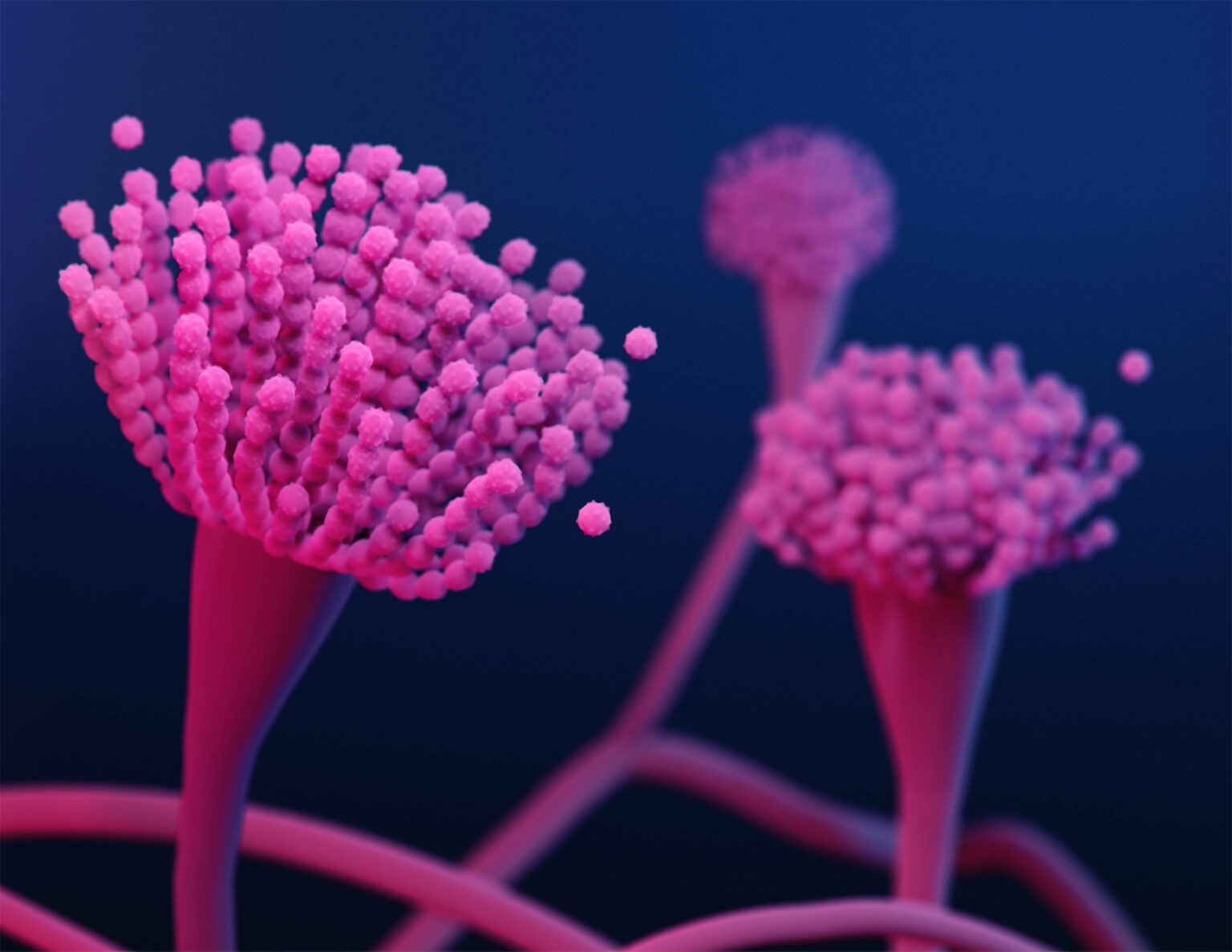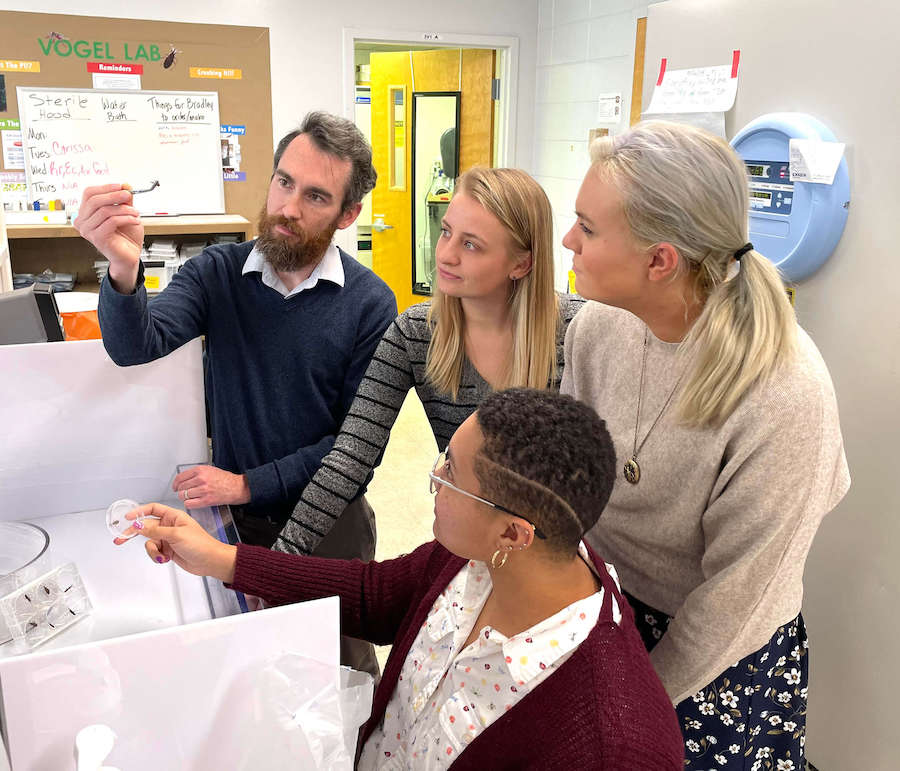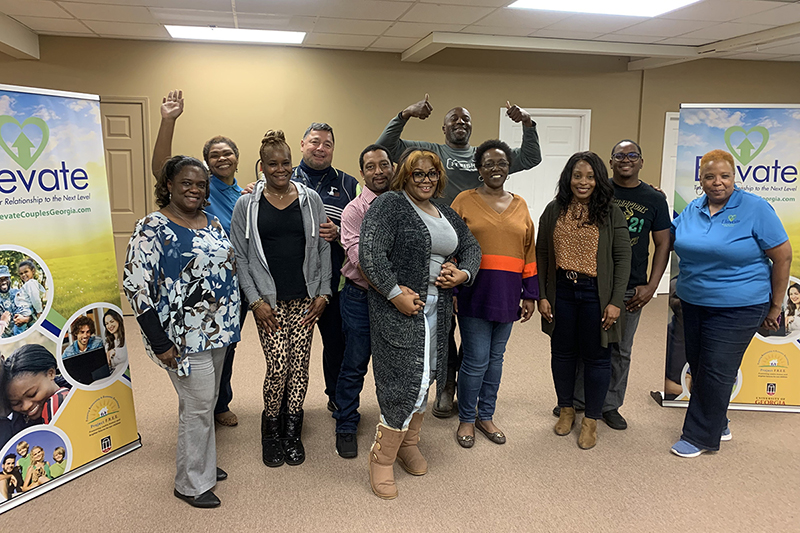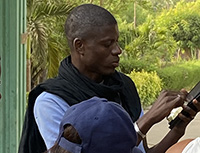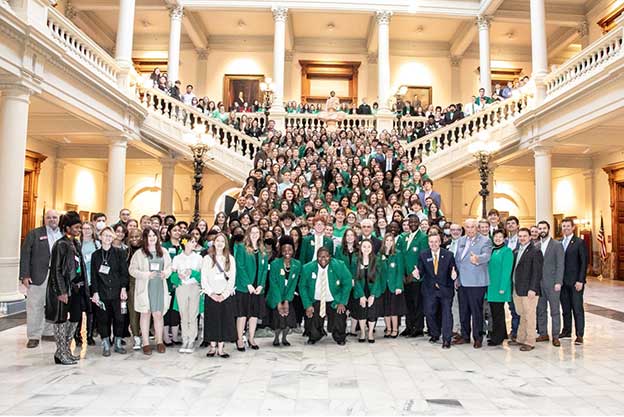 CAES News
CAES News
4-H Capitol Day
On Feb. 9, the Georgia Capitol turned shades of green as it welcomed more than 400 students. Outstanding 4-H’ers from counties across the state gathered at 4-H Day at the Capitol to engage with their legislators, observe leadership in action and learn about the civic process.

